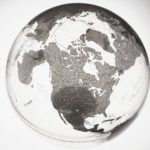
Section 4: Media & The Internet
“Do Global Media Create Community or Conflict? … Cyber-Censorship and Political Control of the Internet … Global Communications Governance … The Internet as a Global “Surveillance … Making Connections”
Summaries
- 4. Media & The Internet > Do Global Media Create Community or Conflict? > Lecture
- 4. Media & The Internet > Cyber-Censorship and Political Control of the Internet > Lecture
- 4. Media & The Internet > Global Communications Governance > Lecture
- 4. Media & The Internet > The Internet as a Global
- 4. Media & The Internet > Making Connections > Interview Video
- 4. Media & The Internet > The Internet as a Global “Surveillance Engine” > Lecture
- In the previous lecture, we were studying a global, and so far a very one sided struggle for control over the internet.
- American administrative hegemony over the internet is benign compared to the hegemony of intelligence agencies, such as the American National Security Agency, and the British GCHQ over global electronic communications.
- The NASA’s PRISM operation mines the enormous amounts of data from the giant online internet companies, like Facebook and Google.
- It’s spies on the telephone and online activity of enormous numbers of both Americans and others.
- Two of the British spying projects are called Mastering the Internet and Global Telecoms Exploitation.
- These revelations, provided by the NSA whistleblower Edward Snowden, have enlarged our sense of how we should see and evaluate the internet and its potential.
- ” While American internet giants like Facebook and Google ingest and store vast amounts of information about people who have chosen to engage with these services, the fact remains that these electronic operations are surveillance engines as well as commercial enterprises.
- Among the NSA revelations of June 2013 was the once secret partnership between the commercial internet giants and the US intelligence establishment that uses their treasure trove of data.
- The NSA, GCHQ revelations raise the question whether people do want to live in a world where the dominant intelligence agencies define and enforce the limits of what all other citizens are allowed to know about the mechanisms and misuses of political power.
- Even in a democracy, a world run by and for intelligence agencies would create an Orwellian soft terror of political intimidation, blackmail, extortion, sadistic harassments, and a criminalization of investigative journalism carried out by faceless and untraceable security bureaucrats.
- These enormous and previously secret operations have now become part of the global imaginary that shapes our view of what the global internet is, and what it can become.
- The world now knows, and to a far greater extent than was previously the case, that the internet is a surveillance engine, in addition to its other roles.
- The making public of what governments regard as state secrets is the nation state’s version of a mortal sin, and states make every effort to track down and punish these heretics.
- Only days before newspapers around the world began to publish the secret materials made available to them by Edward Snowden, and before information about the collaboration between the major American internet companies and the NSA became known, Assange wrote of what he called the ever closer union between the State Department and Silicon Valley.
- As the secret and strategic use of the internet shows, can also be synonymous with invasion of privacy, and a potential for political intimidation of those who are spied upon.
- Baltasar Garzon, the Spanish judge who in 1998 issued an international arrest warrant for the former Chilean president, General Augusto Pinochet on charges of torture and murder said, “what is being done to Mr. Snowden and to Mr. Julian Assange for making disclosures in the public interest is an assault against the people.
- ” From their opposing perspectives, the national security state and the global information activists see the world as a single and unified jurisdiction inside of which only one of two absolute standards must prevail.



